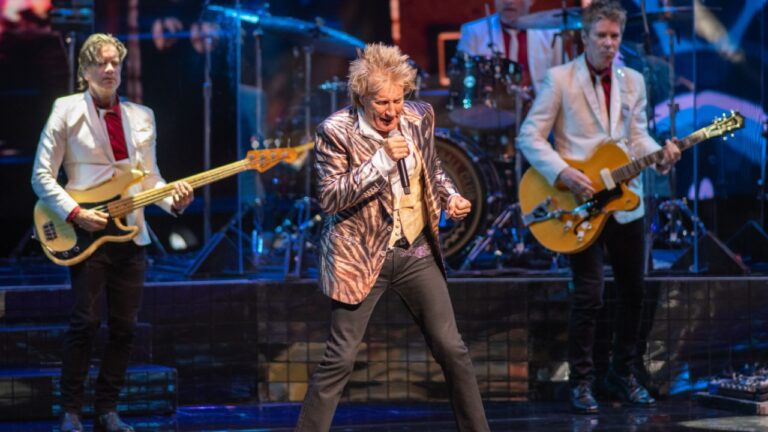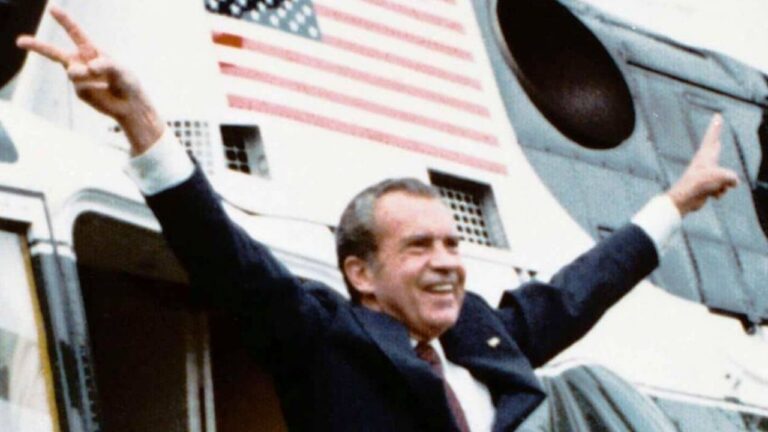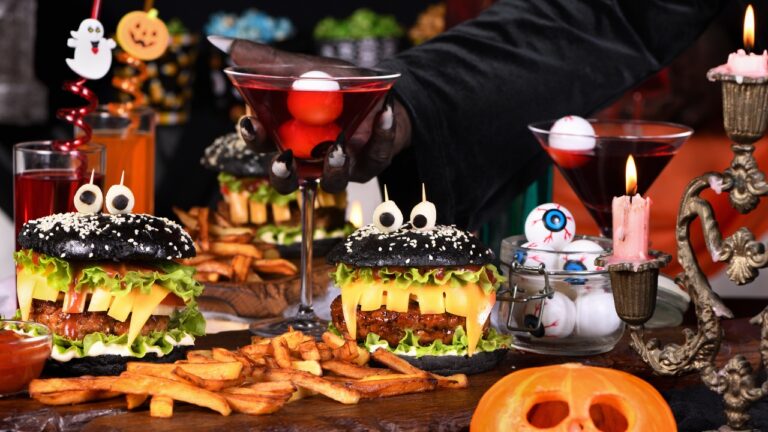15 Best Christopher Lee Movies

It might seem difficult to believe at first, but few men lived as extraordinary a life as Christoper Lee, the prolific actor who appeared in over 200 films throughout his 60-year career. The definition of a Renaissance man, Lee carved a place for himself in the world of film from his sultry-smooth speaking voice and aristocratic sophistication, making him a natural fit for such roles as Count Dracula, The Lord of the Rings’ Saruman, and the Sith Lord Count Dooku in Star Wars.
A trained British intelligence officer, a bilingual expert, a descendant of Charlemagne, and an accomplished heavy metal musician, Lee’s varied interests knew no bounds. In addition to his impressive array of hobbies, Lee’s achievements within the film industry speak for themselves: the actor became a horror legend by the mid-1950s, obtaining the same level of popularity as Boris Karloff, Bela Lugosi, Vincent Price, and Peter Cushing.
With a filmography as extensive as Lee’s, it’s safe to assume certain movies in his career are far better or more recognized than others. From his iconic Hammer Horror films to his later appearances in blockbuster franchises like The Lord of the Rings, here are some of Christopher Lee’s greatest movies, ranked from best to worst.
Dracula

It’s almost impossible to outshine Bela Lugosi when it comes to the definitive interpretation of the infamous Transylvanian vampiric lord, Dracula – and yet Lee comes closest to filling the black cap and fanged teeth of his historic predecessor. The first of several Hammer Horror productions that saw Lee appear as Bram Stoker’s seminal villain, 1958’s Dracula (also known as Horror of Dracula in the U.S.) also ranks as Lee’s greatest cinematic achievement.
The breakthrough film for Lee, Dracula stands out among the most important additions to Lee’s filmography for that simple reason alone. As vital a movie as it guaranteed Lee’s newfound place in the film industry, Dracula also features Lee’s strongest character work of all time. Rather than emulating Lugosi with his character portrayal, Lee reinvents Dracula through his own creative lens, establishing him more as a dangerous, seductive force rather than a hypnotic aristocrat alone. As a result, Lee constructs a version of Dracula that felt uniquely his own, predating the more explicit overtones of ‘60s horror a decade later.
The Lord of The Rings

A dedicated fan of J.R.R. Tolkien’s The Lord of the Rings trilogy throughout his life, Lee long harbored aspirations of playing the wizened sorcerer, Gandalf, in a film adaptation of the series. While Lee’s lifelong dream of playing Frodo’s mentor never came to fruition, the Dracula actor did find his way into Peter Jackson’s adaptation of Tolkien’s books, starting with 2001’s The Fellowship of the Ring.
Playing the role of Saruman the White throughout all three Lord of the Rings films (and its prequel series, The Hobbit), Lee appears as the polar opposite of his compatriot Gandalf (Ian McKellen). Corrupted by the influence of Sauron and aspiring to rule side-by-side with the Dark Lord, Saruman organizes large military efforts to seize control of Middle-earth, waging war against the Fellowship and the kingdom of Rohan. Embodying regal authority in every one of his scenes, Lee’s presence established Saruman as a legitimate threat to the benevolent forces of Middle-earth, making him a natural counterpart to McKellen’s kind-hearted Gandalf.
The Curse of Frankenstein

Not many actors have played Dracula and his notorious counterpart, Frankenstein’s Monster – save for Lee and Bela Lugosi. Signing on to play the Monster in 1957’s The Curse of Frankenstein, Lee left an indelible impression on audience members at the time, leaving viewers speechless with his rendition of the shambling, inhuman Monster.
Standing apart from Boris Karloff’s inwardly sensitive, childlike Monster, Lee characterizes his Creature by his sheer brutality and unshakeable predilection for murder. An archetypical stranger in a strange land, the Creature’s corrupted nature warps his mindset, leading him to lash out at anyone unfortunate enough to cross paths with him. Though a silent role, Lee infuses enough personality into the Creature to justify the movie’s enduring popularity to this day.
The Wicker Man

Aside from Dracula, The Lord of the Rings, and Star Wars, 1973’s The Wicker Man remains one of Lee’s best-known films. Playing the role of the mysterious antagonist, Lord Summerisle, Lee’s appearances in the movie are kept to a minimum, even though audiences feel his character’s malignant influence throughout the movie.
The fanatical grandson to an eccentric agriculturist, Summerisle inherits his ancestor’s idiosyncratic behavior and personality, acting as the de facto leader of a pagan cult on the island of Summerisle. Channeling his grandfather’s stalwart belief in the influence of ancient pagan gods, Summerisle sways his island’s population into carrying out acts of fealty to their deities – including ritualistic sacrifices for the sake of the island’s harvest. Leaving plenty of room for ambiguity in his character’s portrayal, Lee allows audiences to plug in their own interpretation of Summerisle: is he an opportunistic community leader biding time until harvest, or an unwavering believer in the religion he encourages his followers to worship?
Star Wars

Alongside Dracula and Saruman, Count Dooku is without a doubt the most famous role associated with Christopher Lee. Appearing in the prequel films Attack of the Clones and its immediate sequel (Revenge of the Sith), Lee depicts Dooku as the shadowy apprentice to the Dark Lord of the Sith, Darth Sidious (Ian McDiarmid).
A role as sophisticated and refined in nature as Dracula, Dooku maintains a welcome air of nobility within George Lucas’s sci-fi universe. Like Saruman in The Lord of the Rings, Dooku harbors an integral role in Star Wars, influencing the Clone Wars from behind a veiled curtain. Serving as the effective face of the Sith in lieu of his master, his presence and political mentality foreshadow the vigorous frustration Anakin feels for the Jedi Order, making him a fascinating enemy for the future Darth Vader to face on his fall to the Dark Side.
Jinnah

A rare non-horror work from Lee, the 1998 biopic Jinnah focuses on the life and influence of Muhammad Ali Jinnah, the leader and founder of the nation of Pakistan. Often singled out by Lee as his personal favorite film that he ever appeared in, Lee went on to praise the deeper message associated with Jinnah, advocating for peace and prosperity instead of bigotry and hate.
A political idealist in his aspirations and goals, Lee’s Jinnah plots out a way for Hindus and Muslims to coexist rather than tear each other apart over their mutual hostility – a goal that costs Jinnah his family and the respect of his community. Overcoming adversity around every corner, Jinnah can see his optimistic ideals become a reality, never for a moment abandoning his beliefs.
The Three Musketeers

Though Charlton Heston plays the main villain of The Three Musketeers (handing in a masterful performance as the conniving Cardinal Richelieu), Lee consistently captures audiences’ attention with his vile Comte de Rochefort. The right-hand man to Richelieu, de Rochefort proves himself a persistent thorn in the side of D’Artagnan (Michael York), antagonizing the aspiring Musketeer whenever he sees an opportunity.
A bullying spy and methodical killer, de Rochefort is a more than formidable arch-rival to York’s D’Artagnan within the film. Fueled by his bloated ego and general air of self-importance, de Rochefort delights in speaking down to his social inferiors, exploiting the weaknesses of others for his personal amusement. Between his predatory behavior and sinister physical appearance, the character serves as an imposing enemy for D’Artagnan to overcome on his heroic journey.
The Private Life of Sherlock Holmes

Like his contemporary Peter Cushing, Christopher Lee was no stranger to the work of Sir Arthur Conan Doyle, starring opposite Cushing in the 1959 Hammer Horror mystery film, The Hound of the Baskervilles. Eleven years later, Lee again appeared in a work showcasing Doyle’s famous fictional detective in 1970’s The Private Life of Sherlock Holmes.
Directed by the iconic filmmaker Billy Wilder, The Private Life of Sherlock Holmes offers an original mystery involving the Victorian detective (Robert Stephens) and his loyal sidekick, Dr. John Watson (Colin Blakely). In the context of the film, Lee appears as Sherlock’s dry-witted, more conservative-minded older brother, Mycroft. Possessing as astute a mind as his younger sibling, there’s often more to Lee’s Mycroft than meets the eye, the character secretly serving as an intelligence operative for Her Majesty, the Queen (Mollie Maureen). Divided between his loyalty to the sovereign and his genuine love for his brother, Mycroft duels with his inward emotions throughout, doing his best to hazard Sherlock away from the case, yet powerless to stop him from probing deeper and deeper into his investigation.
Charlie and the Chocolate Factory

As Lee grew older, his status as a horror icon lent him further credibility in each of his later performances. As a result of his hallowed status in the film industry, Lee was approached to star in a variety of films from the late ‘90s onwards – albeit usually resigned to a less prominent supporting role, as seen in 2005’s Charlie and the Chocolate Factory.
The second of five movies’ collaborative efforts between Tim Burton and Christopher Lee, Charlie and the Chocolate Factory casts Lee as the domineering dentist father to Johnny Depp’s Wonka. A disapproving single parent unable to express his feelings for his son, Lee also captures the inner love Lee’s character holds for Wonka, the two opposites coming together in a cathartic reunion by the very end of the movie.
The Mummy

One of the many films to feature Lee opposite his close friend/recurring collaborator, Peter Cushing, The Mummy marks yet another Hammer Horror production to cast Lee in an antagonistic role. As with Lee’s earlier work on The Curse of Frankenstein, however, The Mummy provided Lee with another sympathetic anti-villain rather than a full-fledged demonic antagonist on par with Dracula.
As the titular Mummy, Lee is almost unrecognizable beneath the mounds of heavy prosthetic make-up used to age his character. Despite the layers of makeup, though, Lee’s presence shines through via the creature’s lumbering movements and the subtle flicker of emotion in his penetrating gaze. Forced to carry out the will of the conniving Mehemet Bey (George Pastell), the Mummy – also known as Kharis – appears confused, angered, and baffled by his newfound surroundings, his only motivation being to carry out swift vengeance against anyone who desecrated his beloved’s final resting place.
The Hound of the Baskervilles

Yet another Hammer Horror collaboration between Lee and Cushing, The Hound of the Baskervilles, demands a watch if only for the duo’s expert rapport together on-screen. Free from the artificial makeup of The Mummy or The Curse of Frankenstein, Lee and Cushing are allowed to carry out full conversations in character, appearing as respected allies rather than mortal enemies.
Donning the checkered waistcoat of the Victorian gentleman Sir Henry Baskervilles, Lee’s skeptical noble finds himself at the center of a sinister plot on his life. With a dubious Sherlock Holmes (Cushing) and Dr. Watson (André Morell) by his side, the three attempt to solve the strange murders of the fabled Baskerville hound – a creature seemingly targeting Sir Henry as part of some ancient curse on the Baskerville bloodline. Another satisfying entry in Lee’s catalog of films, it’s one of the most underrated Hammer Horror films the studio has ever released.
The Man with the Golden Gun

In many respects, The Man with the Golden Gun is without a doubt the worst James Bond movie ever put to the screen. A meandering mess of a film with a nonsensical plot, painfully-choreographed action, and a horrendous female love interest (Britt Ekland’s bumbling MI6 agent, Mary Goodnight), Christopher Lee’s Francisco Scaramanga is among the movie’s few redeeming qualities.
A malevolent version of 007, Scaramanga is the world’s deadliest assassin – a mercenary so precise he requires only a single bullet from his custom-made golden pistol to bag his quarry. Mirroring Roger Moore’s Bond in terms of his charisma, eloquence, and sheer magnetic presence, he’s one of the very best foes 007 has ever faced off against in the entirety of the James Bond series.
Corpse Bride

The third film by Tim Burton to feature Christopher Lee, Corpse Bride marks another relatively minor entry in Lee’s momentous career. Like each of Lee’s cameos in Burton’s movies, however, Lee’s appearance in the film makes for another crowd-pleasing collaboration between the director and the established horror star.
Voicing the domineering priest Pastor Galswells, Lee’s character officiates the wedding between Johnny Depp’s Victor Van Dort and Emily Watson’s Victoria Everglot. Chastising Victor for his constant mistakes and adhering to strict protocols when it comes to church etiquette, Galswells’ towering official is simultaneously terrifying and humorous in his rigid mannerisms – a delightful blend that Lee pulls off exceedingly well.
The Two Faces of Dr. Jekyll

A fairly minor addition to Lee’s filmography, The Two Faces of Dr. Jekyll has Lee in the supporting role of Paul Allen, a suave, debonair philanderer inserting himself into the marriage of the eponymous Dr. Jekyll (Paul Massie). Playing second fiddle to Massie’s mild-mannered Jekyll and his murderous alter ego, Mr. Hyde, Lee’s Allen falls victim to his romantic counterpart almost halfway through the film.
Drawing scornful reviews from critics in 1960, The Two Faces of Dr. Jekyll has since garnered a respected cult following in the decades since its release. While Lee hardly appears in the movie, his presence as a foil to Massie’s Hyde creates an interesting dynamic between Lee’s roguish homewrecker and his unhinged rival.
Dr. Terror’s House of Horrors

An unsung classic in the anthology horror genre, Dr. Terror’s House of Horrors acts as another collaboration between Peter Cushing and Christopher Lee (this time around, joined by the up-and-coming actor Donald Sutherland). Stupefying the passengers of an English train car with predictions of their future, a strange German doctor (Cushing) draws cards from his Tarot deck, providing terrifying visions of their impending death with each new card.
Offering stories of vampires, werewolves, voodoo, and disembodied appendages, Dr. Terror’s House of Horrors is a bountiful mix of horror subgenres. While Cushing captivates viewers as Dr. Schreck, Lee also hands in a delightful performance as the narcissistic art critic, Franklyn Marsh. A skeptic in temperament and egotist in personality, Marsh is Lee at his most pompous and self-centered — an arrogant professional who believes he’s the smartest man in the room.




